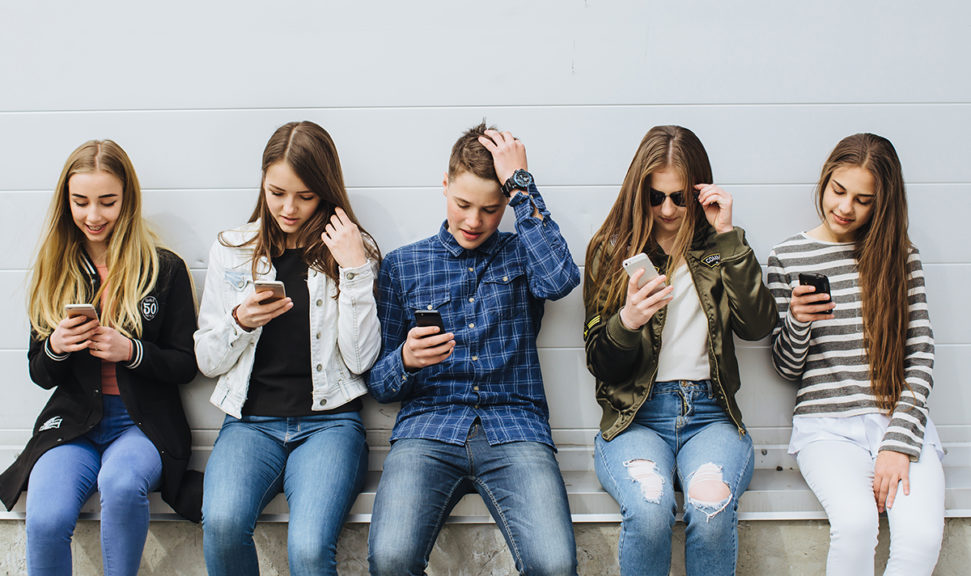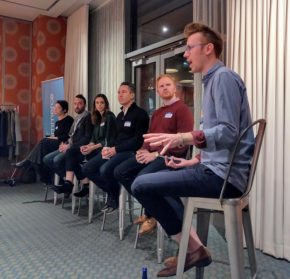Anyone caught in the pre-millennial pop culture current will easily recall Pepsi’s 1992 Super Bowl commercial, in which Cindy Crawford climbs out of a Lamborghini in a pair of daisy dukes, heads to a soda machine and pulls out the world’s first look at the hotly-anticipated new Pepsi can. The moment was iconic: the most adored model in the world, drinking a Pepsi from a newly designed futuristic-looking can as if it were an intensely sensual experience.
Pepsi needed an edge over Coca-Cola, and for a shining moment in early ’92, they accomplished it with the perfect storm of a celebrity endorsement through Ms. Crawford, a brand re-skin and a cultural centerpiece launchpad (the Super Bowl).
The e-commerce world has seen a wildfire rise in the number of successful companies taking root over the last three years. Without in-store distribution, however, brand exposure is limited to the digital world, resulting in a vital need for innovative marketing campaigns, third-party promotions and endorsements by established public figures. Competition is ferocious in this wild new frontier, and a number of efforts are now underway to promote brands with celebrity endorsements – with good reason. The top tweeters are almost all celebrities: 43 of the top 50 most-followed accounts are either musicians or sports stars.
The numbers certainly support Pando’s belief that celebrities will drive the next wave of E-Commerce startups, but what about when it goes wrong? There could be no better example than entrepreneur and self-declared billionaire Donald Trump, whose incendiary remarks on immigration and hispanics have resulted in a severe backlash for the 2016 Republican presidential candidate. In the past two weeks, Trump’s partnerships and endorsements are evaporating like a puddle in the Sahara, and he’s been dumped by NASCAR, NBCUniversal, Macy’s, Univision, Televisa, Farouk Systems, PGA, apparel manufacturer Phillips-Van Huesen and more. NBC won’t broadcast Miss Universe or Miss USA (the network and Trump co-own the beauty pageants), and New York City Mayor Bill de Blasio instructed his office to review existing contracts with the Trump Organization, who currently provides concessions to city facilities.
While the advertising community watches with car-crash fascination, Trump has doubled down on his remarks, and will continue to slide further and further into untouchable status by brands. The takeaway: be very careful who you do business with, and be highly wary of anyone who would serve as the face of your brand. To embrace a volatile personality with a powerful public presence is to endorse their behavior through the cultural lens.
With celebrity endorsements on the rise in e-commerce, the image of businesses hang in the balance of what are potentially volatile personalities in the public eye. The risk is rationalized through exposure, and when an endorsing celebrity finds themselves in the TMZ spotlight, companies that have contracts with them often re-examine the relationship. Often times, immediate damage control becomes necessary, such as the case with Trump. Companies often immediately sever ties, putting distance between the endorser and themselves as quickly as possible.
Building on that idea, I’ve broken down seven of the most high-profile cases of celebrity endorsements gone awry, with their accompanying rationale.
Lance Armstrong
Armstrong was an untouchable hero in the biking world at the turn of the century, but he was forced to relinquish his 1999-2005 Tour de France titles after news broke about his doping scandal. He stepped down as chairman of Livestrong, a cancer-fighting charity he founded, but that was just the beginning of his problems, which amounted to over $150 million in lost endorsements and effectively ruined his own brand. Nike and Anheuser-Busch dropped Armstrong but remained supporters of Livestrong, but after Nike dropped him, so did Annheuser-Busch, Trek Bicycle Corp, FRS and Honey Stinger.
Michael Phelps
The most decorated Olympian of all time won eight gold medals at the 2008 summer Olympics, guaranteeing the young man a golden-paved future of endorsements and sponsorships, even if he never swam again. But in early 2009, a photo depicting Phelps smoking from a bong sent brands scurrying. Cereal giant Kellogs parted ways with the athlete within a week, insisting that Phelps’ behavior did not align with its views, and sandwich maker Subway distanced themselves as well.
Tiger Woods
Once the most celebrated golfer in the world, Tiger woods lost roughly $22 million in endorsements back in 201 after news broke of his multiple extramarital affairs. Gatorade, AT&T, Gillette, EA Sports, Buick and Accenture all jumped ship. Woods’ public image never fully recovered, though he’s since seen a return to brand endorsements.
Ray Rice
Video footage of the Baltimore Ravens running back dragging his unconscious fiancé out of a casino elevator resulted in a firestorm of backlash, with Nike pulling endorsements, EA Sports erasing his presence from the Madden NFL 15 video game, Vertimax, Dick’s Sporting Goods, Modell’s and more. Rice reportedly has no remaining active endorsement deals, a devastating blow to the fallen sports hero.
Chris Brown
When the formerly clean-cut singer pleaded guilty to assaulting his then-girlfriend Rihanna before the 2009 Grammys, Wrigley dropped him as their spokesperson with impressive speed. His “Got Milk?” endorsement deal also went sour.
Jean-Claude Van Damme
The Muscles from Brussels was caught on camera (for a British reality show) complaining about shooting a commercial for Total Flex home gym equipment, insisting he didn’t want to endorse a product he didn’t like. After reportedly showing up on set without knowing his lines he quit the commercial, and was sued for breach of contract to the tune of $25.2 million.
Kate Moss
The cover girl and wife of The Kills rocker Jamie Hince was snapped doing lines of cocaine back in 2005, resulting in a media rush to dub her “Cocaine Kate”. Shortly thereafter, she lost massive endorsement deals from H&M, Chanel, Burberry and more. A turnaround resulted in recent years, after Moss went to rehab and polished her image (to an extent), returning to good graces with campaigns for Rimmel, Dior and Mango – she is now the third-highest paid model in the world.

